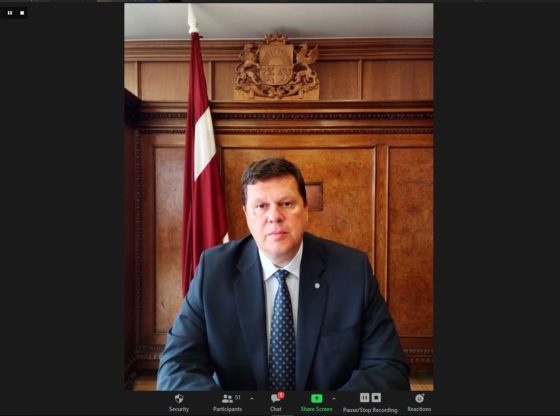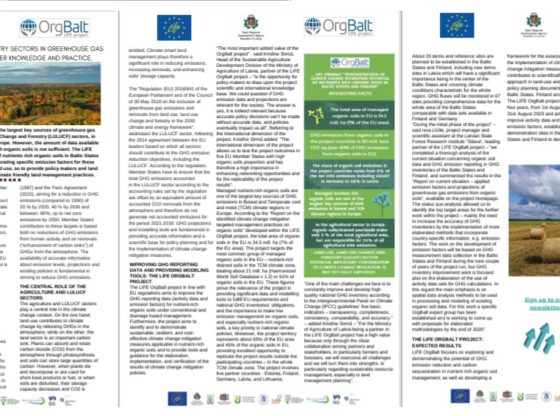LIFE OrgBalt projekta “Klimata pārmaiņu samazināšanas iespēju demonstrēšana auglīgās organiskajās augsnēs Baltijas valstīs un Somijā” nacionālo semināru pirmā kārta norisinājās no aprīļa beigām līdz jūlija…
Sagatavota pirmā LIFE OrgBalt publikācija “Lauksaimniecības un mežsaimniecības nozaru būtiskā loma siltumnīcefekta gāzu emisiju samazināšanā: soļi ceļā uz labākām zināšanām un praksi”. Publikācijas pilnā versija…
2020. gada 1. jūlijā norisinājās pirmais LIFE OrgBalt Latvijas nacionālais seminārs par klimata pārmaiņu samazināšanas pasākumiem auglīgās organiskajās augsnēs. Semināru organizēja Zemkopības ministrija, LIFE OrgBalt…


